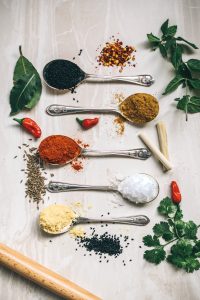What is Histamine Intolerance?
Histamine intolerance is a condition in which individuals experience adverse reactions to foods or substances that contain or release histamine. Histamine is a type of chemical that is produced by the body and is involved in many biological processes, including the regulation of stomach acid secretion, digestion, and sleep. Histamine is also found in certain foods, such as aged cheese, fermented foods, and certain types of fish.
Histamine intolerance is caused by either a lack of the enzyme, diamine oxidase (DAO), or by an excessive production of histamine. DAO is an enzyme that is responsible for breaking down histamine in the body. When there is an insufficient amount of DAO, the body is unable to process the histamine overload and the person experiences an adverse reaction.
Histamine intolerance is a condition in which individuals experience adverse reactions to foods or substances that contain or release histamine. It is caused by either a lack of the enzyme, diamine oxidase (DAO), or by excessive histamine production. Histamine intolerance is a condition that affects a large number of people and can be difficult to diagnose. This article will provide an overview of histamine intolerance, including its symptoms, diagnosis, treatments, dietary measures, supplements, lifestyle tips, and natural remedies.
What Causes Histamine Intolerance?
The cause of histamine intolerance is not fully understood, but there are several factors that may play a role. One of the most common causes is a lack of the enzyme DAO. This can be caused by a genetic mutation, a dietary deficiency, or a medication that inhibits the production of DAO. Another possible cause of histamine intolerance is an excessive production of histamine. This can be caused by an allergy, a bacterial infection, or other factors.
Other possible causes of histamine intolerance include certain medications, such as antihistamines, antibiotics, and some antidepressants. Alcohol, smoking, and certain medical conditions, such as mastocytosis or mast cell activation disorder, may also trigger histamine intolerance.
Symptoms of Histamine Intolerance
The symptoms of histamine intolerance can vary from person to person, but they generally include gastrointestinal symptoms, such as abdominal pain, diarrhea, and nausea. Other common symptoms include fatigue, headaches, hives, itching, asthma, and difficulty breathing. In more severe cases, individuals may experience anaphylaxis, which is a life-threatening reaction that requires immediate medical attention.
Diagnosing Histamine Intolerance
Diagnosing histamine intolerance can be difficult as many of the symptoms are similar to other conditions. The first step in diagnosing histamine intolerance is to rule out other possible causes. Your functional medicine practitioner or GP may order blood tests, skin tests, or other tests to check for allergies or other medical conditions. Once other causes have been ruled out, a functional medicine practitoner may perform a histamine challenge test, which involves ingesting a specific amount of histamine and monitoring the individual for a reaction.
Treatments for Histamine Intolerance
Treating histamine intolerance will vary depending on its cause. If the individual has a deficiency in DAO, then your functional medicine doctor may recommend taking a DAO supplement. If the individual has excessive production of histamine, then your practitioner may recommend avoiding certain foods and substances that contain or release histamine. Additionally, your functional medicine practitioner will look at running tests to see if you have gut dysbiosis such as SIBO or excess pathogenic bacteria.
Dietary Measures for Histamine Intolerance
If you have histamine intolerance, it is important to avoid foods that contain or release histamine. Some of the most common foods that should be avoided include aged cheeses, fermented foods, alcohol
bananas, tomatoes, wheat germ, beans, papaya, chocolate, citrus fruits processed meats, canned foods, and certain types of fish. Additionally, it is important to eat fresh foods as much as possible and to avoid leftovers.
Nutritional Factors to Consider:
The DAO enzyme relies on B6, B12, iron, copper, and vitamin C, so it’s wise to take in more of these elements. Copper and vitamin C are indispensable components of the DAO enzyme, and B6 serves as a significant cofactor to enable the enzyme to break down histamine. Copper deficiency can also be a reason for a low DAO activity, since it is a major atom of the enzyme and consequently, fundamental for its operation.
Lifestyle Tips for Managing Histamine Intolerance
In addition to dietary and supplement measures, there are several lifestyle tips that may help to reduce the symptoms of histamine intolerance. These include avoiding stress and getting enough sleep, as well as avoiding triggers such as smoke, perfumes, and other environmental pollutants. Additionally, it is important to drink plenty of water and to limit your exposure to sunlight, as this can cause the body to produce more histamine.
Natural Remedies for Histamine Intolerance
There are several natural remedies that may help to reduce the symptoms of histamine intolerance. These include consuming foods that are high in quercetin, such as apples, onions, and broccoli, as well as drinking herbal teas, such as chamomile, ginger, or peppermint. Additionally, consuming probiotics may help to reduce the symptoms of histamine intolerance.
How we can help
If you are experiencing any symptoms with digestive issues or you have symptoms of fatigue, mental health issues or unexplained symptoms, reach out to us at the London Centre for Functional Medicine and we would be happy to schedule a 15-minute free discovery call to talk about options in relation to your health challenges.








